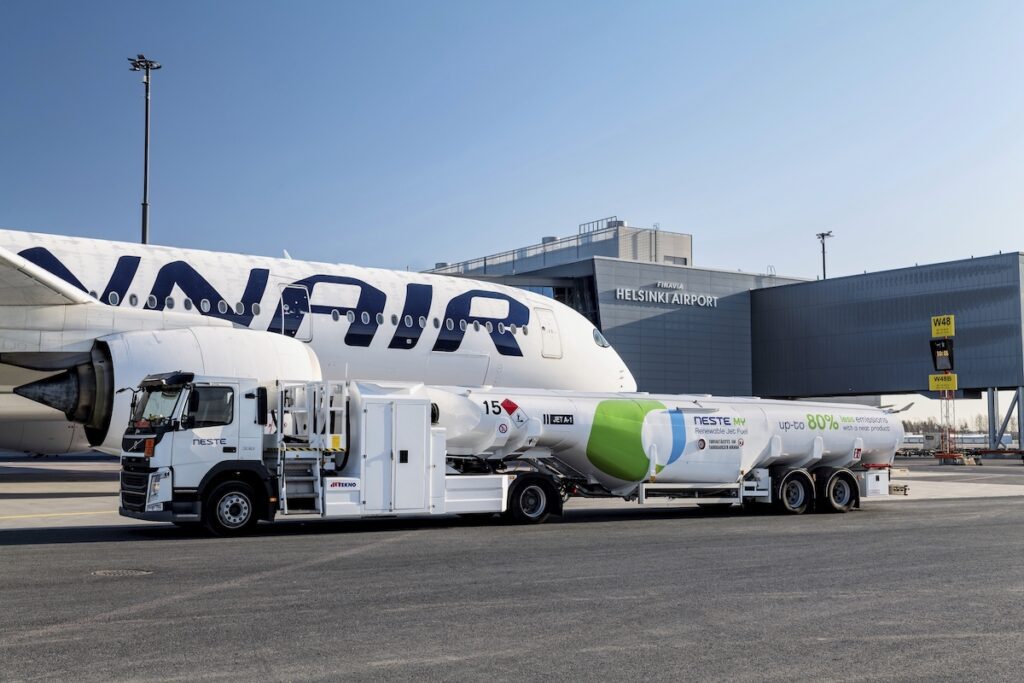The European Parliament on Wednesday approved the bloc’s sustainable aviation fuel mandates in the push to cut aviation emissions dramatically.
The mandates, which are part of the European Union’s Fit for 55 program to cut carbon emissions, require that 2% of all aviation fuel used in the bloc must be low-emission sustainable aviation fuel, or SAF, from 2025. SAF is typically defined as having at least half the lifecycle carbon emissions as standard fossil jet fuels. The sustainable fuel mandate steps up to 6% in 2030, 34% in 2040, and 70% by 2050.
Synthetic fuels, for example those derived from so-called green hydrogen, must make up 1.2% of SAF usage from 2030 and 35% by 2050.
“This is a tremendous step towards the decarbonization of aviation,” European Parliament representative José Ramón Bauzá Díaz said. “It is now time for EU governments to implement the new rules and support the industry to ensure the cost-effective deployment of sustainable aviation fuels across Europe.”

The mandates come amid growing calls from European airlines for financial support to achieve the SAF targets. Production of the low-emission fuels currently represent a fraction of a percent of global aviation fuel demand. Ramping up production can take years as would-be producers source feedstocks and secure the necessary approvals to open processing facilities.
“The EU should do what the United States is doing already [and] incentivize SAF,” KLM CEO Marjan Rintel told Airline Weekly in June.
The U.S., rather than mandate SAF usage, provided producers and distributors tax incentives for the fuels in 2022’s Inflation Reduction Law.
Many, however, believe that a combination of SAF incentives and mandates — the proverbial carrots and sticks — are necessary to both boost production of the fuels and bring costs down to near parity with fossil fuels. SAF typically costs several times more per gallon than conventional jet fuel.
The EU’s new mandates have been in the works for several years. The European Parliament first passed them last year but had to vote on a revised plan after tripartite negotiations with the European Commission and Council of the EU, similar to the reconciliation process between the U.S. House and Senate after they pass two different versions of the same bill.
Tags: climate change, europe, klm, sustainable aviation fuel